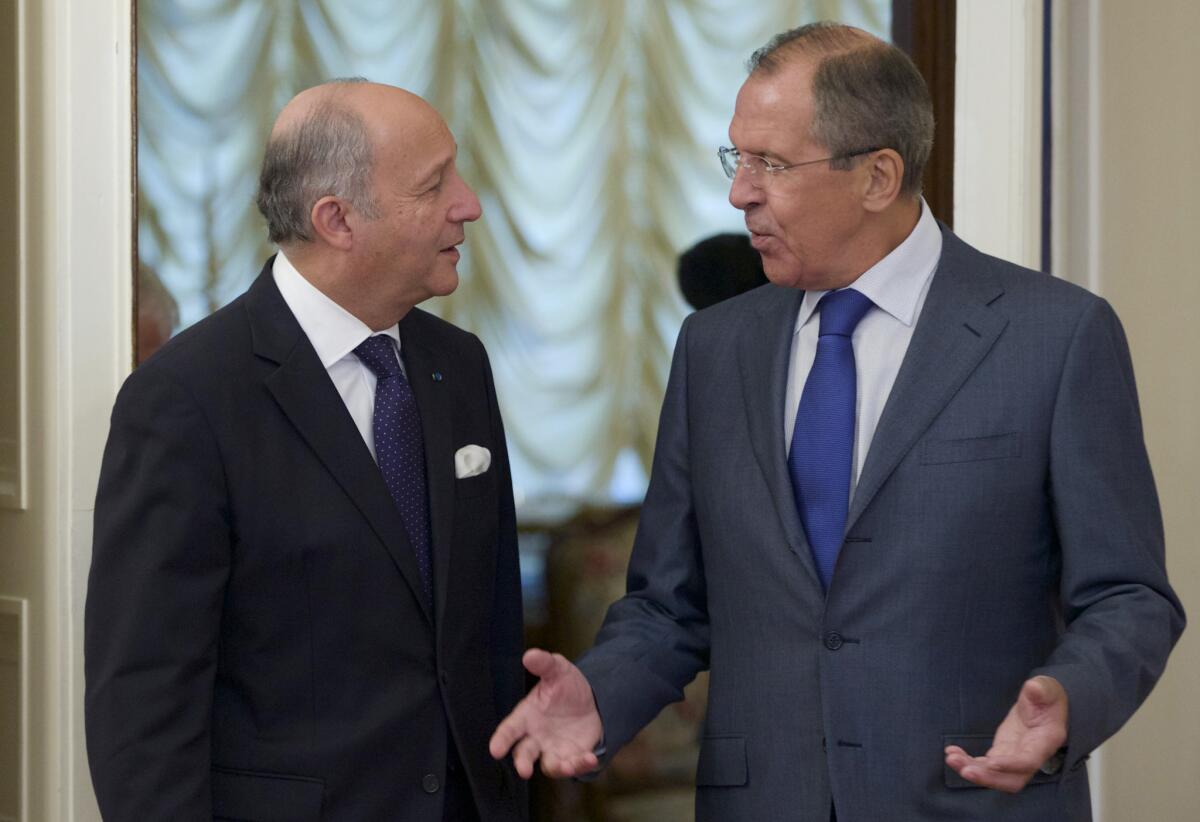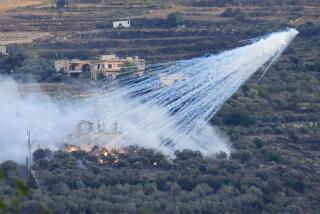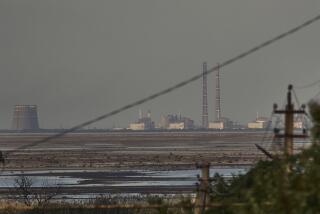Russia says no proof Syria’s government carried out chemical attack

MOSCOW -- Russian Foreign Minister Sergei Lavrov said Tuesday that a report by United Nations weapons inspectors provided no proof that Syrian President Bashar Assad’s forces were responsible for a chemical attack last month.
Lavrov’s comments, after a meeting Tuesday with his French counterpart, underscored the differences that remain between world leaders after the United States and Russia agreed Saturday on a plan for Syria to give up its chemical weapons by the middle of next year.
Although the U.N. report does not assign blame, Western diplomats and independent experts said Monday that it offered irrefutable evidence that Assad’s forces fired sarin-filled rockets with Russian markings into Damascus suburbs Aug. 21.
DOCUMENT: U.N. report on chemical weapons use in Syria
Western diplomats said rebel forces did not have the sophisticated manufacturing capabilities to produce the weapons and nerve agent described by U.N. experts, and that U.N. data about the trajectory of the rockets indicated that they were fired from government-held territory.
French Foreign Minister Laurent Fabius said Tuesday that the U.N. report left “no doubt” that Assad’s forces were behind the attacks.
“I don’t say that we need to plunge into battle, but we need to be vigilant,” he said at a news conference with Lavrov.
Lavrov took the opposite view. “The report proves that chemical weapons were used,” he said. “There is no answer as to where the chemical round was manufactured, whether it was produced at a plant or homemade.”
Lavrov played down the Cyrillic lettering found on some rocket fragments, saying, “You know, this region has so many weapons floating around, both from Soviet times and from more recent times.”
“We want the events of Aug. 21 to be investigated impartially, objectively and professionally,” he said.
Lavrov reiterated Russia’s contention – shared by Syria – that the attack was a “provocation” by rebels intended to persuade world leaders to intervene in the 2½-year-old war.
And he dismissed the notion that the U.N. Security Council should pass a resolution based on Chapter 7 of the U.N. Charter -- which authorizes the use of force to maintain peace -- to enforce the U.S.-Russian plan for impounding and destroying Syria’s chemical weapons.
Rather, he said, the resolution should provide measures to ensure the safety of international weapons inspectors.
Many governments are worried that Assad might seek to drag out the process, conceal some of the weapons or obstruct inspectors. Until recently, Syria did not acknowledge possessing chemical weapons.
The U.S., France and Britain are pressing the Security Council to adopt an “enforceable and binding resolution” with remedies that could include force. But Russia, which has veto power on the council, has balked at any suggestion of military action.
U.S. officials have said they reserve the right to take unilateral action if Syria reneges on its promise to surrender its chemical arsenal.
Lavrov reiterated his call for a political solution in Syria, saying Assad’s government had expressed its readiness to take part in peace negotiations.
U.S. Secretary of State John F. Kerry and Lavrov expressed hope last week that a date for a second international peace conference in Geneva, to follow up on one held in the Swiss city last year, could be decided in the margins of a U.N. General Assembly meeting scheduled at the end of this month.
[For the record, 3:07 p.m. PDT: An earlier version of this post incorrectly said that Russian Foreign Minister Sergei Lavrov dismissed the notion that the U.N. Security Council should pass a resolution based on Chapter 7 of the U.N. Charter as “absurd.” The word he used was “abstract.”]
ALSO:
In Bangladesh, death penalty for Islamist leader sparks riots
First witness testifies in Hague trial of Kenya’s deputy president
U.N. probe confirms Syrian chemical weapons use: Now the hard part
More to Read
Sign up for Essential California
The most important California stories and recommendations in your inbox every morning.
You may occasionally receive promotional content from the Los Angeles Times.










